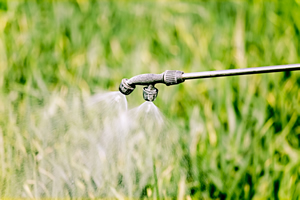
Asian Farmers would Face Increase in Weed Control Costs on Glyphosate Use Restrictions
March 27, 2019| |
 A new study reports that farmers in seven countries in Asia are facing higher weed control costs, less effective weed control, more difficult access to fields and lower yields, if they could no longer use glyphosate. The study estimates that annual weed control costs would increase across the seven countries by between US$1.4 billion and US$1.9 billion, with average increases in cost ranging from US$22/ha to US$30/ha.
A new study reports that farmers in seven countries in Asia are facing higher weed control costs, less effective weed control, more difficult access to fields and lower yields, if they could no longer use glyphosate. The study estimates that annual weed control costs would increase across the seven countries by between US$1.4 billion and US$1.9 billion, with average increases in cost ranging from US$22/ha to US$30/ha.
The study results are summarized in a peer-reviewed paper by Graham Brookes of PG Economics Ltd., and examined the current use of glyphosate, the reasons for its use, and the changes that farmers would make to their weed control programs if they cannot use glyphosate anymore. Seven countries included in the study are Australia, China, India, Philippines, Indonesia, Vietnam, and Thailand, where glyphosate use in agriculture is significant, countries that may be considering use restrictions for glyphosate and countries where farmers are planting glyphosate tolerant biotech crops.
The economic and environmental benefits of planting glyphosate tolerant biotech corn and cotton in Australia, Philippines, and Vietnam will also be lost. Without glyphosate, farmers will be less able to realize the environmental benefits of no and reduced tillage such as a lower levels of carbon emissions, less soil erosion, and greater soil moisture content.
For more details, read the news release from PG Economics.
| |
Biotech Updates is a weekly newsletter of ISAAA, a not-for-profit organization. It is distributed for free to over 22,000 subscribers worldwide to inform them about the key developments in biosciences, especially in biotechnology. Your support will help us in our mission to feed the world with knowledge. You can help by donating as little as $10.
-
See more articles:
-
News from Around the World
- GM Seeds Market Expected to Rise Swiftly in Asia Pacific
- Asian Farmers would Face Increase in Weed Control Costs on Glyphosate Use Restrictions
- Uganda's Biosafety Bill May Soon Be Enacted into a Law
- Plant Defense Genes Provide Clues to Safener Protection in Sorghum
- U.S. Senate Calls For Stability of Ag Biotech Amid Trade Negotiations with China
- Bolivia Approves Use of Biotechnology for Soy Production
- Global Research Team Discovers How Plant Immunity is Transferred
- European Parliament Report Says EU Missing Out Great Opportunity
-
Research Highlights
- Scientists Develop Transgenic Tomatoes with Resistance to Root Knot Nematode
- Chinese Researchers Reports TransgenicSoybean with Resistance to Phytophthora Root and Stem Rot
-
Announcements
- World Summit on Biotechnology and CRISPR Advances
-
Resources
- USDA/APHIS Launches Webpage for Pests and Diseases
-
Plant
- CRISPR Residency Program for Artists Launched
- Gene-edited High Oleic Soybean Oil Now Available in the US
- CRISPR-Cas9-Mediated SlNPR1 Mutagenesis Reduces Tomato Plant Drought Tolerance
-
Read the latest: - Biotech Updates (December 17, 2025)
- Gene Editing Supplement (December 17, 2025)
- Gene Drive Supplement (February 22, 2023)
-
Subscribe to BU: - Share
- Tweet
